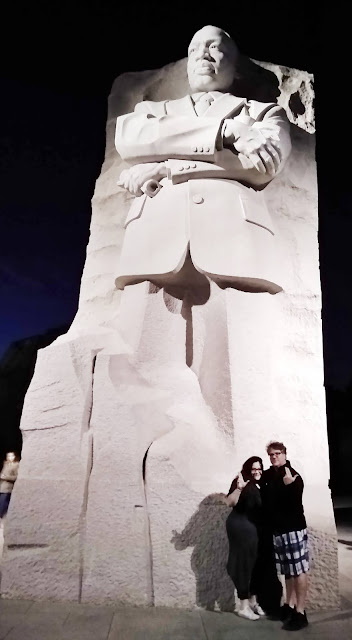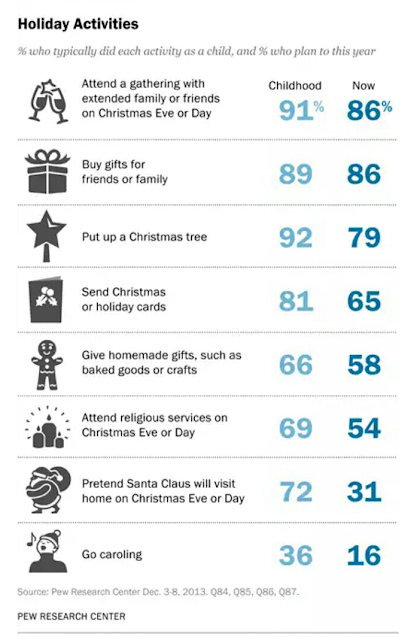Public statement to the Daviess County Fiscal Court, Public Forum on the proposed Fairness Ordinance January 30, 2020
My name is Chad Gesser. I am an Associate Professor of Sociology and have been a full time professor for 16 years of the 25 years I’ve been teaching. I’ve also been a small business owner for the past 10 years.
I am here speaking this evening out of a sense of obligation. I have been fortunate for the past 25 years to be able to engage with students in the classroom, mostly introducing them to my field of study: Sociology. For those that do not know, sociology is the study of society. My field of study is built on a body of research and we examine all topics relative to be human, to be in society.
My sense of obligation centers around my areas of specialty, which include culture, inequality, and community. Over the past 20 years inequality has been a central focus of my field of study, particularly in the United States.
I teach a course entitled Inequality in Society. During that class, which lasts about 4 ½ months, we cover in great detail subject matter central to inequality in society. These topics include race, social class, gender, and sexual preference.
At the heart of each of these topics are the topics of prejudices, stereotypes, discrimination, and institutional prejudice and discrimination. On the surface these topics appear emotionally charged. The benefit that I and the students have in the classroom setting is that we are intentionally there to study these topics. As a result, my classes are always thoughtful, detailed, conversive, and frankly rewarding. Students find this class helpful in their understanding of people that may be different than the groups they belong to. Students also gain insight on topics central to inequality.
I would like to share a couple of insights from my professional experience that bear on topics relative to this evening’s public hearing.
First, culture has changed drastically over the past 20 years. As a result, people from different age groups increasingly have difficulty relating to one another. At the same time, community life has also become quite diverse.
For example, according to a 2019 report by the Pew Research Center, in 2004 only 31% of the American public approved of same sex marriage. In 2019 that number grew to 61%. When we look at those that indicate they oppose or approve of gay marriage over the past 16 years, the data actually are flipped flop over time. I bring up this particular point of information because for me, with my students, it stands as one of the most remarkable shifts in public opinion in the modern era. This is also relevant because of age groups. I mentioned this earlier. Many of us in this room grew up in an era where there was non acceptance of members of the LGBTQ community. I’m here to tell you that fact is not my fault, and it’s not your fault. But, culture and the times have changed.
When I cover this material with my students (certainly those of the younger generation) there often is a sense of relief. The students are glad to hear that their acceptance of members of the LGBTQ community is not a behavior that is inconsistent with the acceptance or lack thereof in the country. Young people feel the community does not represent their standards and values of acceptance.
We don’t have to look to national information to chart the acceptance of members of the LGBTQ community. As you know, many Kentucky communities have adopted fairness ordinances prohibiting LGBTQ discrimination in employment, housing, and public accommodations. These include Louisville (1999), Lexington (1999), Covington (2003), Vicco (2013), Frankfort (2013), Morehead (2013), Danville (2014), Midway (2015), Paducah (2018), and Maysville (2018), Henderson (2019), Dayton (2019), Georgetown (2019), and Versailles (2019). Given the movement of these fairness ordinances, communities that overtly choose not to enact these protections do in fact give voice to prejudice and discrimination at the individual and the policy level. I do believe this is a very important consideration as you reflect upon your decision of this ordinance. What will you be saying to the public, to other communities, to businesses, if you choose not to pass this ordinance?
I now want to speak from a different vantage point. I’m married and have been for 22 years to my lovely and inspiring wife Susan. We are both from Owensboro-Daviess County. We have four children: ages 19, 15, 12, and 5. We are also both practicing Catholics, and our family are members of Sts. Joseph and Paul Parish.
I believe that in part I represent the silent majority. I’m not on either extreme of this “debate.” While I believe in the dignity of each person, regardless of race, gender, social class, and sexual preference, I also understand that your decision is a political one. Politics is not always moral, it’s not always ethical, it’s not always fair. What I do know is that culture has changed. We as a population of people are different now than we were 30 years ago, 20 years ago, even 10 years ago.
Be careful to hear only the extremes, and consider doing what is right not for you but for the good of this community and its future.
My name is Chad Gesser. I am an Associate Professor of Sociology and have been a full time professor for 16 years of the 25 years I’ve been teaching. I’ve also been a small business owner for the past 10 years.
I am here speaking this evening out of a sense of obligation. I have been fortunate for the past 25 years to be able to engage with students in the classroom, mostly introducing them to my field of study: Sociology. For those that do not know, sociology is the study of society. My field of study is built on a body of research and we examine all topics relative to be human, to be in society.
My sense of obligation centers around my areas of specialty, which include culture, inequality, and community. Over the past 20 years inequality has been a central focus of my field of study, particularly in the United States.
I teach a course entitled Inequality in Society. During that class, which lasts about 4 ½ months, we cover in great detail subject matter central to inequality in society. These topics include race, social class, gender, and sexual preference.
At the heart of each of these topics are the topics of prejudices, stereotypes, discrimination, and institutional prejudice and discrimination. On the surface these topics appear emotionally charged. The benefit that I and the students have in the classroom setting is that we are intentionally there to study these topics. As a result, my classes are always thoughtful, detailed, conversive, and frankly rewarding. Students find this class helpful in their understanding of people that may be different than the groups they belong to. Students also gain insight on topics central to inequality.
I would like to share a couple of insights from my professional experience that bear on topics relative to this evening’s public hearing.
First, culture has changed drastically over the past 20 years. As a result, people from different age groups increasingly have difficulty relating to one another. At the same time, community life has also become quite diverse.
For example, according to a 2019 report by the Pew Research Center, in 2004 only 31% of the American public approved of same sex marriage. In 2019 that number grew to 61%. When we look at those that indicate they oppose or approve of gay marriage over the past 16 years, the data actually are flipped flop over time. I bring up this particular point of information because for me, with my students, it stands as one of the most remarkable shifts in public opinion in the modern era. This is also relevant because of age groups. I mentioned this earlier. Many of us in this room grew up in an era where there was non acceptance of members of the LGBTQ community. I’m here to tell you that fact is not my fault, and it’s not your fault. But, culture and the times have changed.
When I cover this material with my students (certainly those of the younger generation) there often is a sense of relief. The students are glad to hear that their acceptance of members of the LGBTQ community is not a behavior that is inconsistent with the acceptance or lack thereof in the country. Young people feel the community does not represent their standards and values of acceptance.
We don’t have to look to national information to chart the acceptance of members of the LGBTQ community. As you know, many Kentucky communities have adopted fairness ordinances prohibiting LGBTQ discrimination in employment, housing, and public accommodations. These include Louisville (1999), Lexington (1999), Covington (2003), Vicco (2013), Frankfort (2013), Morehead (2013), Danville (2014), Midway (2015), Paducah (2018), and Maysville (2018), Henderson (2019), Dayton (2019), Georgetown (2019), and Versailles (2019). Given the movement of these fairness ordinances, communities that overtly choose not to enact these protections do in fact give voice to prejudice and discrimination at the individual and the policy level. I do believe this is a very important consideration as you reflect upon your decision of this ordinance. What will you be saying to the public, to other communities, to businesses, if you choose not to pass this ordinance?
I now want to speak from a different vantage point. I’m married and have been for 22 years to my lovely and inspiring wife Susan. We are both from Owensboro-Daviess County. We have four children: ages 19, 15, 12, and 5. We are also both practicing Catholics, and our family are members of Sts. Joseph and Paul Parish.
I believe that in part I represent the silent majority. I’m not on either extreme of this “debate.” While I believe in the dignity of each person, regardless of race, gender, social class, and sexual preference, I also understand that your decision is a political one. Politics is not always moral, it’s not always ethical, it’s not always fair. What I do know is that culture has changed. We as a population of people are different now than we were 30 years ago, 20 years ago, even 10 years ago.
Be careful to hear only the extremes, and consider doing what is right not for you but for the good of this community and its future.




